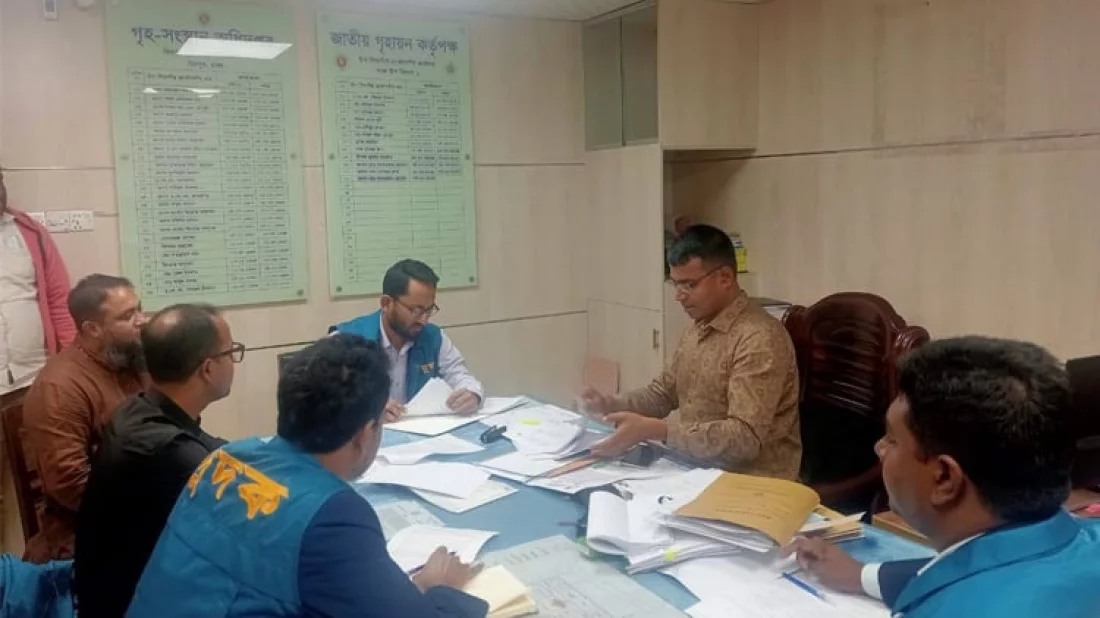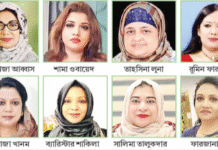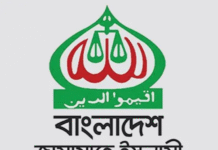The Anti-Corruption Commission (ACC) has sounded the alarm over a troubling trend of public servants secretly acquiring dual citizenship and foreign passports, allegedly to evade anti-corruption investigations and legal scrutiny.
In a directive issued on Monday, the ACC highlighted cases where officials violated the Government Service Act, 2018, by obtaining foreign passports while retaining their positions in Bangladesh.
This breach of Section 40 of the law, the ACC claims, facilitates the concealment of ill-gotten wealth abroad and allows corrupt individuals to avoid accountability.
The commission’s investigations have revealed that some officials exploit dual citizenship not only to launder illegally amassed assets but also to undermine the country’s economy and the integrity of public service.
The commission expressed concern over the apparent disregard for national responsibilities displayed by such individuals.
Individuals serving as defense officers, court employees, judges, government officials, employees of autonomous organizations and elected representatives—are categorized as “public servants” under laws such as the Penal Code, 1860 (Section 21), and the Anti-Corruption Act, 1947 (Section 2).
The ACC has called on all ministries to audit their records and submit information on public servants with dual citizenship or foreign passports.
It has also urged policymakers to consider these violations during recruitment and reappointment processes.
What is the provision for dual citizenship?
Dual citizenship refers to a person holding the citizenship of two countries simultaneously.
Many countries, including Bangladesh, have provisions for dual citizenship under specific regulations.
To obtain dual citizenship, one must apply to the Ministry of Home Affairs’ Security Division, which handles immigration and security.
Following an investigation based on intelligence agency reports, the ministry may issue a certificate of dual citizenship or cancel the application, in compliance with the Citizenship Act and relevant regulations.
However, according to Bangladesh’s dual citizenship provision, public servants and citizens from certain countries, including Myanmar, are not eligible for dual citizenship.
There are also proposals to restrict dual citizenship for citizens of Saarc countries.
Officials at the Ministry of Home Affairs explained that dual citizenship exists for various reasons.
For instance, if a child is born in the United States to Bangladeshi parents, she or he is entitled to US citizenship by birth, and simultaneously retain her or his Bangladeshi citizenship due to birthright.
Additionally, expatriates who acquire citizenship in another country will not lose their Bangladeshi citizenship.
Moreover, any individual providing false information or hiding facts during the dual citizenship process may have her or his citizenship revoked and face fines or imprisonment.
For Bangladeshis wishing to acquire dual citizenship, the application must be submitted in English in a specified form to the Ministry of Home Affairs’ Immigration and Security Division. Necessary documents include a photocopy of the foreign passport, a copy of the foreign-born person’s citizenship certificate and a fee of Tk5,000. The application must be attested by a first-class officer or a notary public.
The ministry processes applications within 60 working days, following verification by intelligence agencies. Additionally, individuals married to foreign nationals can apply for Bangladeshi citizenship under specific guidelines.
The process for obtaining permanent residency or citizenship for investors and foreign nationals also follows similar procedures, with specific fees and timelines set at 90 working days.
Nasrin Jahan, Deputy Secretary of the Immigration Division at the Ministry of Home Affairs, said that special regulations apply to public servants, MPs, judges, and constitutional officeholders regarding dual citizenship.
“Under the Government Service Act, public servants cannot hold dual citizenship, and MPs are prohibited from acquiring it under the Constitution and RPO,” she added.
Bangladeshis now hold dual citizenship in 101 countries
Currently, Bangladeshis have the opportunity to acquire dual citizenship in 101 countries.
Among these countries are several nations across Africa, including Egypt, South Africa, Kenya, Algeria, Sudan, Morocco, Ghana, Rwanda, Burundi, Tunisia, Sierra Leone, Libya, Congo, Liberia, Central African Republic, Eritrea, Gambia, Botswana and Mauritius.
In South America, 12 countries are included in the list, such as Brazil, Bolivia, Colombia, Venezuela, Suriname, Argentina, Peru, Ecuador, Chile, Uruguay and Guyana.
Additionally, Bangladeshis can also hold dual citizenship in countries across the Caribbean and beyond, including Cuba, the Dominican Republic, Haiti, the Bahamas, Jamaica, Trinidad and Tobago, Dominica, Saint Lucia, Barbados, Saint Vincent and the Grenadines, Saint Kitts and Nevis and even Fiji.
dhaka tribune










